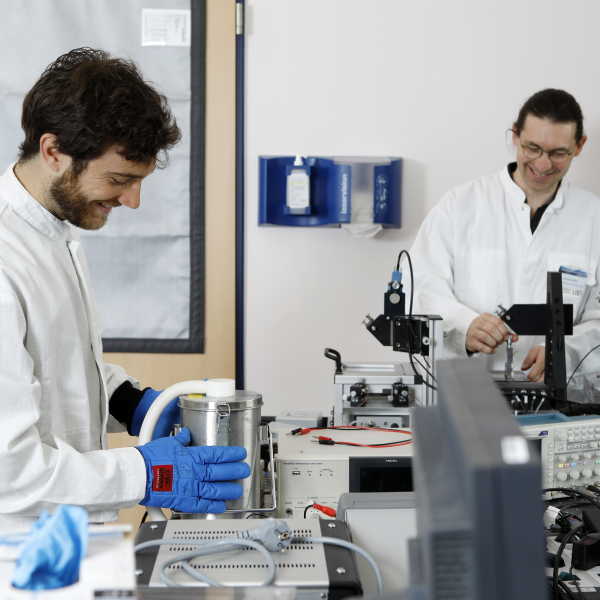
Image Credit: Luxembourg Institute of Science and Technology.
These systems not only release greenhouse gases, exacerbating environmental concerns but also generate substantial noise. It is crucial to prioritize the advancement of energy-efficient and environmentally friendly systems to tackle global warming and promote responsible utilization of our natural resources.
In this instance, the electrocaloric effect is activated by applying an electric field to ceramic capacitors, prompting temperature shifts that generate a cooling effect.
Our proposed solution involves an assembly of multilayer capacitors stacked within an electrically connected fluid-filled pipe. The fluid flows back and forth between the capacitors, creating a temperature gradient.
Dr. Emmanuel Defay, Lead, Nanotechnology Unit, Materials Research and Technology Department, Luxembourg Institute of Science and Technology
Defay and his team have devoted several years to researching electrocaloric materials.
Their creation, known as a regenerator, holds the potential to substitute the traditional compressor and environmentally detrimental fluids found in existing refrigerators. This innovation offers a more sustainable and energy-efficient cooling solution. Undoubtedly, enhanced energy efficiency stands as a significant advantage of this technology.
The applications of this technology extend far beyond refrigeration and encompass air conditioning as well. “Our research was previously detailed in an article in Science three years ago. We have achieved significant milestones since then, with our latest paper showcasing promising developments, notably regarding energy efficiency and scale-up solutions.”
Defay's team is actively collaborating with numerous companies to explore the practical applications of their technology, signifying a crucial stride toward its implementation. Notably, the regenerator was developed in partnership with the Japanese manufacturing company Murata.
While we are already making tangible progress, we are continually working to enhance the maturity and practicality of our technology. The ultimate goal is to offer a viable and sustainable alternative to current refrigeration solutions.
Dr. Emmanuel Defay, Lead, Nanotechnology Unit, Materials Research and Technology Department, Luxembourg Institute of Science and Technology
Dr. Damien Lenoble, Director of the MRT department notes, “Addressing energy-related challenges has been set among our research priorities over the past five years. It is imperative to showcase the applicability of our cutting-edge materials in technologies that effectively harness energy, produce and store green hydrogen, enhance energy efficiency, and reduce overall energy demand.”
“Turning the top-level research conducted at LIST into practical and disruptive technologies is the cornerstone for a renewed industrial leadership in Europe, all while adhering to the highest environmental standards. This particular technology, developed under the leadership of Dr Emmanuel Defay, represents one of several exceptional contributions from LIST that bolster Luxembourg's reputation as a hub for research-driven innovations with substantial added value for both the country and Europe,” concludes Dr Damien Lenoble.
Journal Reference:
Li, J., et al. (2023). High cooling performance in a double-loop electrocaloric heat pump. Science. doi.org/10.1126/science.adi5477.